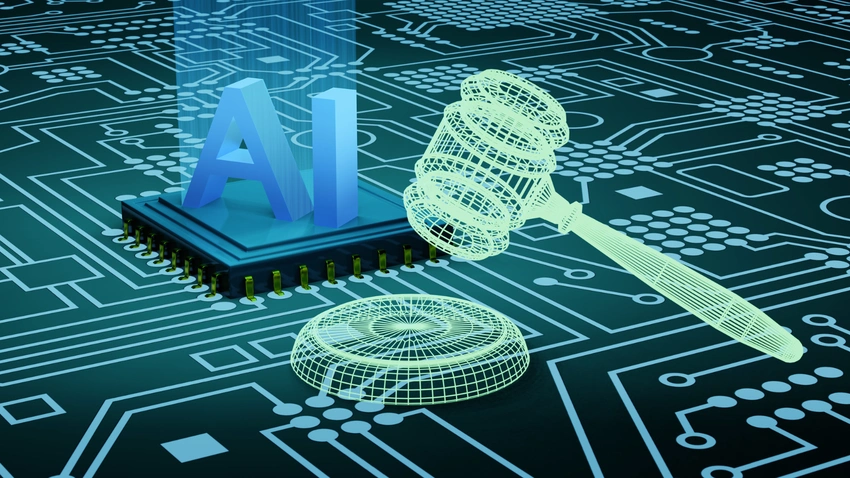The Ethics of AI: Understanding the Responsibility of Developing Intelligent Systems

Artificial Intelligence (AI) is a significantly transformative technology with the innate potential to revolutionize numerous sectors, from healthcare and education to finance and transportation. However, the rapid advancement of AI also raises significant ethical concerns. As AI systems become more integrated into our everyday lives, it is important to understand the responsibilities involved in developing these intelligent systems. This article explores the ethical considerations of AI and the importance of responsible AI development. For those interested in contributing to ethical AI practices, pursuing an artificial intelligence course can provide valuable insights and skills.
Key Ethical Considerations in AI Development
1. Bias and Fairness
AI systems can inadvertently perpetuate or amplify biases present in their training data. This can lead to the inherently unfair treatment of certain groups, reinforcing existing social inequalities. Ensuring fairness in AI requires diverse and representative training data, as well as rigorous testing to identify and mitigate biases.
2. Transparency and Explainability
AI algorithms, particularly those involving deep learning, can be complex and opaque. This lack of transparency makes it arduous to understand how several decisions are made, leading to concerns about accountability. Developing explainable AI systems that provide insights into their decision-making processes is pivotal for building trust and ensuring accountability.
3. Privacy and Security
AI systems often rely on huge volumes of personal data, dealing with concerns about privacy and data security. Developers must implement robust data protection measures to take care of sensitive information and ensure compliance with privacy regulations. Ethical AI development involves balancing the benefits of data-driven insights with the innate need to protect individual privacy.
4. Autonomy and Control
As AI systems become more truly autonomous, questions arise about the exact extent of human control over these systems. Ensuring that humans remain in control and that AI systems can be overridden or corrected when necessary is crucial for ethical AI development. This involves setting clear boundaries for AI autonomy and establishing mechanisms for human oversight.
5. Social Impact
AI can have far-reaching social impacts, influencing employment, social interactions, and economic structures. Developers must consider the major implications of their AI systems, aiming to create technologies that enhance societal well-being and mitigate negative consequences. This involves engaging with stakeholders and conducting impact assessments to understand and address potential social effects.
The Role of AI Developers in Ethical AI
AI developers play an unskippable role in ensuring that AI systems are actively developed and deployed ethically. Here are some key responsibilities:
1. Ethical Training and Education
AI developers should receive training in ethics to understand the broader implications of their work. Enrolling in an artificial intelligence course that includes ethics as part of the curriculum can provide a strong foundation. An AI course in Bangalore often integrates ethical considerations into technical training, preparing developers to navigate ethical challenges in AI development.
2. Inclusive Design Practices
Incorporating diverse perspectives in the several design and development processes helps to identify and mitigate biases. AI developers should work with interdisciplinary teams and engage with diverse communities to ensure that AI systems are fair and inclusive.
3. Continuous Monitoring and Evaluation
Ethical AI development is an actively ongoing process that requires continuous monitoring and evaluation. AI developers should implement mechanisms for ongoing assessment of AI systems, including auditing for biases, evaluating performance, and updating systems in response to new ethical challenges.
4. Engagement with Policy and Regulation
AI developers should stay informed about relevant policies and regulations and contribute to discussions on AI ethics and governance. Engaging with policymakers and participating in industry standards initiatives can help shape ethical guidelines and ensure that AI development aligns with societal values.
Learning Ethical AI Development
For those interested in ethical AI development, pursuing an artificial intelligence course with a strong focus on ethics is crucial. Here are some recommended courses and resources:
1. Courses
- “AI Ethics: Implications and Applications” by Coursera: This course explores the various ethical implications of AI and provides frameworks for ethical decision-making in AI development.
- “AI for Everyone” by Andrew Ng on Coursera: While not exclusively focused on ethics, this course includes important discussions on the societal impacts of AI and ethical considerations.
2. Books
- “Artificial Intelligence: A Guide for Thinking Humans” by Melanie Mitchell: This book provides an accessible overview of AI and its ethical implications, making it a great resource for beginners.
- “Weapons of Math Destruction” by Cathy O’Neil: This book explores the dangers of biased algorithms and the importance of ethical AI practices.
3. Workshops and Seminars
Attending workshops and seminars on AI ethics can provide valuable insights and networking opportunities. Look for events hosted by universities, industry groups, and professional associations.
Conclusion
As AI continues to truly evolve and integrate into various aspects of society, the ethical considerations surrounding its development and deployment become increasingly critical. AI developers have a profound responsibility to ensure that their creations are fair, transparent, secure, and socially beneficial. Pursuing an artificial intelligence course that emphasizes ethical considerations can equip developers with the knowledge and skills needed to navigate these complex challenges.
For More details visit us:
Name: ExcelR – Data Science, Generative AI, Artificial Intelligence Course in Bangalore
Address: Unit No. T-2 4th Floor, Raja Ikon Sy, No.89/1 Munnekolala, Village, Marathahalli – Sarjapur Outer Ring Rd, above Yes Bank, Marathahalli, Bengaluru, Karnataka 560037
Phone: 087929 28623
Email: enquiry@excelr.com







